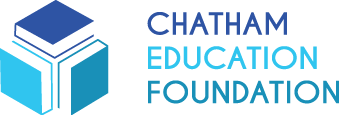If you have children in Chatham County Schools or if you’ve been following local news, then you know that there was a big push to get, first, our Board of Education to recommend and, then, our Board of Commissioners to increase teacher supplements. Those from other states with fully-funded public schools may not understand this dire need for the county to provide these supplements to attract and retain the best teachers. But in North Carolina, which ranks 48th in per pupil funding, last in funding effort, and 41st in teacher pay, we have learned we cannot rely on the state.
Last year in Chatham County, we lost 13% of our teachers to other school districts or to the profession all together. As the number one predictor of student success is a quality teacher in every classroom, we should not have to force students, for example, to take difficult math classes online.
While it should not be the county’s responsibility to fund instructional needs, it’s become a necessary weapon as North Carolina continues to spend a smaller percentage of its general fund on education over time—from 52.3% in 1970 to 40.9% in 2021-22. Chatham County is fortunate to have a BOE and BOC on its side to bridge the gap in teacher pay, but as CCS Superintendent Dr. Anthony Jackson relayed at the February 2024 Board of Education meeting, “This will not matter if we are not willing to extend our advocacy to the state and federal levels for additional resources needed for long-term competitiveness.”
School funding: who pays for what?
So, if it’s not the county’s responsibility to give teachers raises, whose is it? And what does the county fund? Here’s the breakdown on who pays for what in regards to education in North Carolina.

